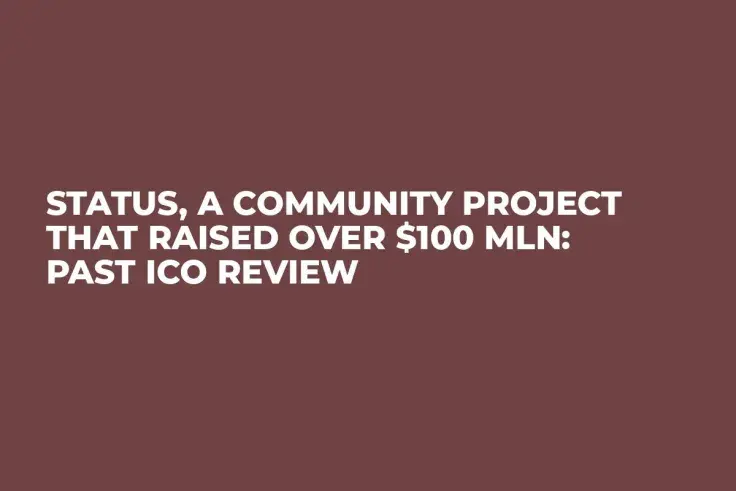
Status OS is a lite client of Ethereum. It is a small operating system that has encrypted services such as web browsing, chat, and payments - in Ether only.
The ICO raised $102 mln during a one day only sale on June 14, 2017. The entry price per token was $0.0366 and it is now trading at $0.95273.
The platform is based on the Ethereum Blockchain. This means that users can design their apps via smart contracts. Status is thus also connected to the Ethereum peer-to-peer network and can exchange data via the decentralized network.
Status’s Light Client offers a good opportunity for many users to work with the Ethereum Blockchain without having to download it completely.
The Status platform sees itself as a community project that functions via an open source system. Anyone who wants to participate can work on the platform. This ensures that users ensure the network design. Interestingly, Status sees itself as a new form of social media platform.
Seven dapps and more to come
That sounds like a lot of functions, so what can Status do for me?
There are seven dapps on Status so far, with more to come in the future. First, it is possible to receive, send and save Ethereum or other cryptocurrencies. Status has an eWallet built into the dapp so you can use it for payments, sending or receiving money.
Also, users can also trade in Ether or use it as a means of payment in shops, provided that that store will accept payment in ETH.
The app provides the service to use its own encrypted and mobile identity to make digital interactions more secure. When you visit the site, you can download many different dapps which are all associated with Status and can be used within the Status OS app.
Messaging, payments, smart contracts and more
Additionally, there is an encrypted messenger, such as telegram, which can be used to send or receive Ether, complete Smart-Contracts and simply chat with friends.
In regards to payments, the Status Hardwallet is a particularly innovative solution as currently no other hardware wallet or mobile wallet in the industry supports transaction settlement through NFC.
Since the wallet will be compatible with all major cryptocurrencies including Bitcoin, Ether, and ERC20 tokens, users outside of the Status network will be able to use the Status Hardwallet to store and transact using other cryptocurrencies.
Seven dapps within the OS:
uPort
Declare digital independence. uPort is a self-sovereign identity system.
Gnosis
Crowd sourced wisdom. Make complex predictions on the go with an easy to use prediction market.
Oasis Exchange
Enjoy a near-instant decentralized digital asset exchange between ETH and ERC20 tokens.
Ethlance
The decentralized jobs marketplace. Hire or work for cryptocurrency, with no fees.
Aragon
Create unstoppable companies and organizations, and value without borders.
Etherisc
A decentralized insurance platform. Buy a policy on the go, and be paid claims automatically.
Ujo
Ujo is a home for artists. Create and control your creative content, and share it with the world.
The low down
This is a new take on the traditional OS for sure, but what we won’t know is how it will be received when it launches. When it comes to any product or service, it is the metrics and the number of units sold that matter to the market and to, most importantly, the investors. While the token is not worth much, it does not mean that the company is not worth anything. Until then, investors and users alike are awaiting the release of the software. Only after that point will Status be able to prove its status.
 Vladislav Sopov
Vladislav Sopov Dan Burgin
Dan Burgin